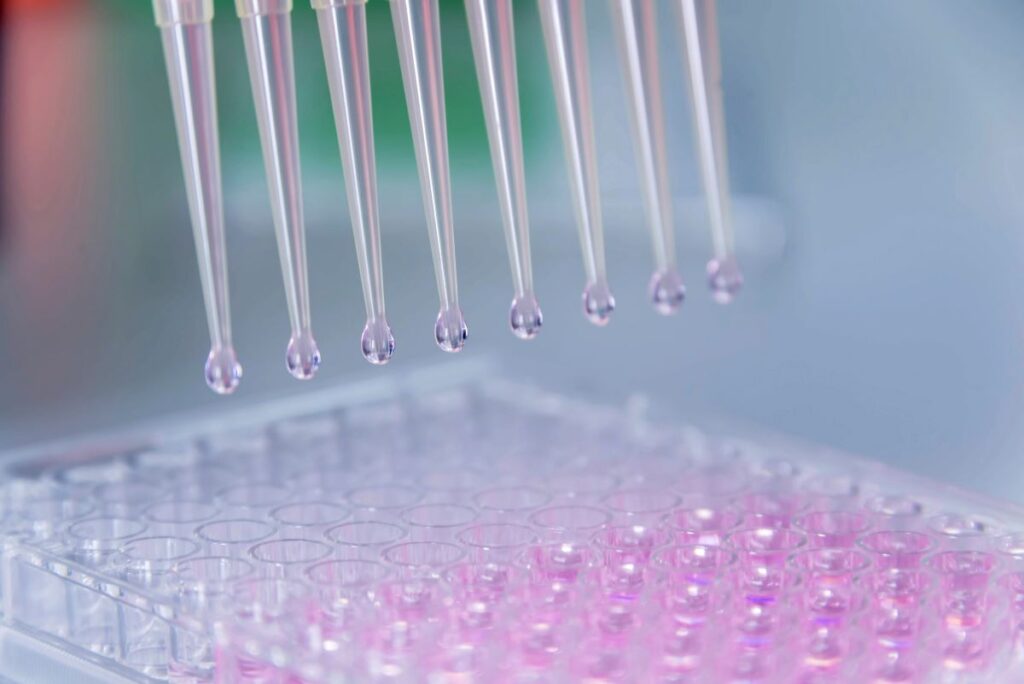The use of cellular immunotherapy in cancer treatment is one of the great revolutions in medicine in recent times. With a promising approach to disease treatment, CAR-T cells combine the chimeric CAR antigen with T lymphocytes and have already been successfully used to treat hematological cancers.
Medical advancements in this field have shown that chimeric antigen receptor (CAR) cells, combined with immune system cells, can deliver effective results. In this approach, a patient’s T cells are genetically modified to express artificial receptors that recognize and destroy tumor cells.
Following the success of CAR-T cell therapy, further research has been conducted, including the combination of macrophages with CAR cells.
Learn more about this study
What are macrophages? Like lymphocytes, macrophages are cells present in the immune system and function within the body to combat viruses, bacteria, and other foreign agents. They are derived from monocytes, which transform into macrophages when they leave the bloodstream and settle in connective tissue.
According to studies already conducted, macrophages that express the chimeric CAR antigen have great potential to enhance cancer therapies.
CAR macrophages are genetically modified immune cells designed to express chimeric receptors. Once introduced into the environment where cancer cells reside, they can recognize and destroy malignant cells.
The fusion of CAR (Chimeric Antigen Receptor) with macrophages is achieved through genetic modification of these cells. Like CAR-T cells, genes that encode the chimeric receptor are inserted into macrophages. This receptor allows macrophages to specifically recognize and attack tumor cells. Additionally, genetically modified macrophages can also reprogram the tumor microenvironment, helping to overcome immunosuppression caused by tumors and boosting the antitumor immune response.
How CAR macrophages act in the tumor microenvironment
Studies show that, when genetically modified, CAR macrophages work to reprogram the tumor microenvironment. This occurs when these modified cells alter the environment around the tumor, which is typically immunosuppressive and aids the tumor in evading the immune system. Activated macrophages can secrete pro-inflammatory cytokines that modify the cells surrounding the tumor, making the environment more hostile to cancer cells. Furthermore, these macrophages can recruit other immune cells, increasing the effectiveness of the immune response against cancer.
These studies mainly focus on solid tumors, which are more difficult to treat with therapies like CAR-T cells, which are primarily used against hematological cancers.
Challenges: macrophage interference in CAR-T therapy
This new model of immunotherapy faces significant challenges. One of them is that tumor-associated macrophages (TAMs) are generally linked to immunosuppressive functions in the tumor microenvironment, helping the tumor escape immune surveillance. They do this by secreting anti-inflammatory cytokines, which inhibit the activity of T cells, including CAR-T cells. Moreover, TAMs can promote the formation of a dense extracellular matrix, making it difficult for CAR-T cells to infiltrate the tumor, preventing their direct access to cancer cells.
This immunosuppressive action of macrophages in the tumor microenvironment creates a significant barrier to the efficacy of CAR-T cells in solid tumors, hindering both the recognition and destruction of cancer cells.
Given this limitation, one of the most recent approaches in immunotherapy combines CAR-T therapy with macrophage modulators, aiming to neutralize the pro-tumoral function of TAMs and enhance the antitumor activity of CAR-T cells.
Some strategies used by researchers include reprogramming TAMs from the M2 (pro-tumoral) phenotype to the M1 (pro-inflammatory) phenotype, as M1 macrophages are more effective in promoting inflammation and destroying tumor cells. Using agents that induce this polarization can boost the activity of CAR-T cells, creating a more hostile environment for the tumor and enhancing the immune response.
Innovation in the fight against cancer
Studies on CAR macrophages are in the preclinical phase, involving in vitro experiments and animal models. According to researchers leading these studies, macrophage modulation in the context of CAR-T therapy represents one of the most significant innovations in the fight against cancer.
The expectation is that these therapeutic combinations will open new possibilities for treating tumors previously considered resistant to immunotherapy, improving response rates and patient survival.


